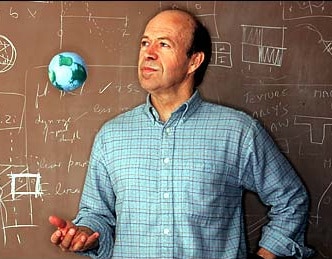In the third of three posts charting how climate change became a political issue, we see how Margaret Thatcher, the high priestess of the magical free markets, first took up Hansen’s call…
Margaret Thatcher as British Prime Minister would be the first politician of global stature to address the increasingly urgent concerns about climate change.
Her speech before the Royal Society in September 1988 was a celebration of science but also a clarion call demanding international government action and a personal endorsement of the Intergovernmental Panel on Climate Change which was just being established. “A nation which does not value trained intelligence is doomed,” she told the fellows.
“Science and the pursuit of knowledge are given high priority by successful countries, not because they are a luxury which the prosperous can afford; but because experience has taught us that knowledge and its effective use are vital to national prosperity and international standing.”
She waited until the end of her speech to turn to global warming. “Engineering and scientific advance have given us transport by land and air, the capacity and need to exploit fossil fuels which had lain unused for millions of years,” she observed.
Fundamental equilibrium
“One result is a vast increase in carbon dioxide, and this has happened just when great tracts of forests which help to absorb it have been cut down.”
She went on: “For generations, we have assumed that the efforts of mankind would leave the fundamental equilibrium of the world’s systems and atmosphere stable.”
HOW CLIMATE SCIENCE BECAME A POLITICAL ISSUE
Part 1: James Hansen: How Climate Change Became Political
Part 2: James Hansen: I Thought There Would Be a Rational Response
Part 3: How Free Market Thatcher First Called for Climate Action
Next Week: Monckton’s Odd Claim He Inspired Thatcher’s Climate Call
“But it is possible that with all these enormous changes—population, agriculture, use of fossil fuels—concentrated into such a short period of time, we have unwittingly begun a massive experiment with the system of this planet itself.”
She explained that a Commonwealth country, once part of the British Empire, faced immediate danger from climate change.
Necessary expense
She relayed a meeting with the president of the Maldive Islands where the population was then 177,000 and “the highest part of the Maldives is only six feet above sea level”.
Regulations, she said, in the case of sulphur emissions from power stations had proven to be a “great but necessary expense”.
Thatcher called for more research, “and to consider the wider implications for policy—for energy production, for fuel efficiency, for reforestation”.
She added: “This is no small task, for the annual increase in atmospheric carbon dioxide alone is of the order of three billion tonnes. And half the carbon emitted since the Industrial Revolution remains in the atmosphere.”
Stable prosperity
In a soundbite relayed to listeners by the BBC the following morning, she concluded: “Stable prosperity can be achieved throughout the world provided the environment is nurtured and safeguarded. Protecting this balance of nature is therefore one of the great challenges of the late twentieth century.”
It was not Marxists, environmentalists and hippies hell-bent on tearing down capitalism that brought climate change from the computer laboratories into the political arena as would later be suggested.
It was the high priestess of free market capitalism herself.
A decade later, her speech would be described by one British national newspaper as “a true epiphany, the blinding discovery of a conviction politician, which overnight turned the environment from being a minority to a mainstream concern in Britain”.
Thatcher’s presentation at the Royal Society was in fact merely a dress rehearsal as she intended to take her one-woman climate show onto the world stage.
Subscribe to our newsletter
Stay up to date with DeSmog news and alerts






